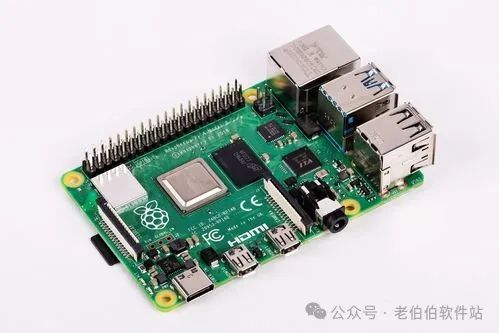Comparison of C Compilers on Embedded Development Boards
Embedded system development has always been a field that is both challenging and fun in the programming world, especially when conducting project practices on development boards like Raspberry Pi. Among them, choosing a suitable C compiler is one of the important decisions every developer must make before starting a project. In this article, I will compare and analyze two commonly used C compilers on embedded development boards like Raspberry Pi—GCC and Clang, from installation methods, performance differences to applicable scenarios, helping you choose the compiler that best fits your project.

GCC Compiler
GCC, short for GNU Compiler Collection, is a programming language compiler developed by GNU, supporting multiple programming languages, including C. On embedded development boards, especially devices running Linux operating systems, GCC is one of the default compilers, and its popularity and support are very high.
Installing GCC
Installing GCC on Debian-based Linux distributions like Raspberry Pi is quite simple. Just open the terminal and run the following command:
sudo apt-get update
sudo apt-get install gccThese two commands will first update your package list, then install GCC. Once installed successfully, you can check if GCC is installed and its version information by running gcc --version.
Advantages of GCC
-
• Mature and Stable: As a long-established and widely used compiler, GCC has extremely high stability and mature functionality;
-
• Cross-Platform: Supports multiple operating systems and architectures;
-
• Powerful Optimization Capability: GCC provides rich compilation options and optimization settings, capable of generating highly efficient runtime code;
-
• Wide Library and Tool Support: Due to the widespread use of GCC, many open-source projects prioritize compatibility with GCC.
Disadvantages of GCC
-
• Compilation Speed: Compared to Clang, GCC’s compilation speed is usually slower;
-
• Error Messages: GCC’s error messages can sometimes be difficult to understand, especially for beginners.

Clang Compiler
Clang is a relatively new C language compiler, which is the front end of LLVM. One of the design purposes of Clang is to overcome some deficiencies in GCC, such as slow compilation speed and unclear error messages.
Installing Clang
Installing Clang on Raspberry Pi is also very simple. You can install it using the following command:
sudo apt-get update
sudo apt-get install clangSimilar to installing GCC, these commands will first update your package list and then install Clang. After installation, you can also confirm Clang’s installation and version information by running clang --version.
Advantages of Clang
-
• Fast Compilation Speed: Clang generally provides faster compilation speed than GCC in most cases;
-
• Clear Error and Warning Messages: Clang pays special attention to user experience in its design, providing friendlier error and warning messages that help developers quickly locate issues;
-
• Good Compatibility: Clang is committed to being compatible with GCC and can compile most code written for GCC.
Disadvantages of Clang
-
• Maturity and Stability: Although Clang is constantly catching up, it still lags behind GCC in terms of maturity and stability;
-
• Optimization Capability: In some scenarios, the code generated by Clang may not be as optimized as that generated by GCC.

Performance Differences and Applicable Scenarios
When considering performance differences, it’s important to understand that no single compiler excels in all situations. GCC performs better in certain types of optimizations, especially in generating highly optimized code. On the other hand, Clang has advantages in compilation speed and user experience (error reporting).
Applicable Scenarios
-
• GCC: If your project relies on highly optimized code or runs in resource-constrained embedded systems, GCC may be the better choice. Its maturity and stability also make it suitable for large applications in production environments.
-
• Clang: For development environments that require frequent compilation or for new projects seeking a better development experience (e.g., clear error messages), Clang may be the better choice.
Ultimately, the choice of which compiler to use also depends on personal preference and the specific needs of the project. I recommend trying both compilers at the beginning of the project to see which one fits your project better.
If you like my content, feel free to like and follow, and see you next time!
